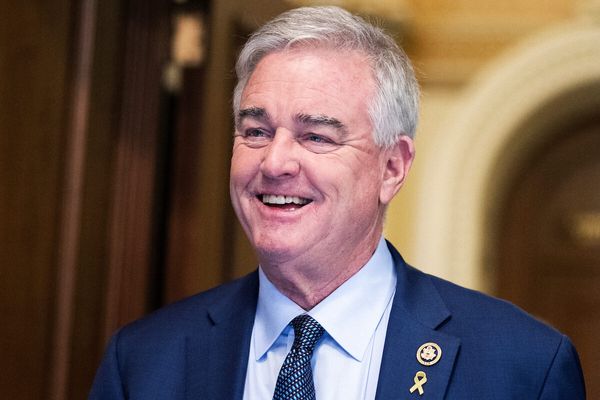
Scottish ministers have ditched their legal action against Westminster’s block on Holyrood’s gender recognition reform bill, while challenging a future Labour government to allow it to become law by lifting the veto.
Shirley-Anne Somerville, Holyrood’s social justice secretary, said that it was currently “impossible” to see a way forward for the bill, which was passed with cross-party support by the Scottish parliament last December and would have made Scotland the first country in the UK to introduce a self-identification system for people who want to change their legally recognised sex.

But in a statement to MSPs on Wednesday afternoon she insisted it would not be withdrawn from parliament.
Responding to celebration from the Scottish Conservative benches that “the SNP’s dangerous GRR bill is in the bin where it belongs”, Somerville retorted: “For the avoidance of doubt, this bill is not in the bin and is waiting an incoming UK government that has more respect for devolution.”
Earlier this month, Scotland’s highest civil court ruled that Downing Street’s unprecedented use of a section 35 order to block Holyrood’s contentious gender recognition reform bill was lawful.
In what the first minister, Humza Yousaf, described as a “dark day for devolution” Lady Haldane in the court of session rejected the argument from Scottish ministers that that the use of the veto contained in section 35 of the Scotland Act – which had been invoked for the first time – marked an “impermissible intrusion on the constitutional settlement”.
The Scottish secretary, Alister Jack – who made the order to prevent the bill going for royal assent in January this year arguing it cut across existing UK-wide equalities legislation, welcomed the decision not to appeal Haldane’s ruling.
Having previously estimated that current spending on the case could amount to about £380,000 for both governments and would probably rise to “the thick end of £2m” if it progressed to the supreme court, Jack said the UK government would seek to reclaim expenses from the case.
Somerville told MSPs that she would “happily sit down” with the UK government current or future to reach a compromise on the bill, but added that she believed that Jack would now consider using the s35 powers on any legislation his government disagreed with.
“Regardless of people’s views and opinions on gender recognition, that is a very worrying place for our parliament to be.”
Responding to the statement, Scottish Labour’s Paul O’Kane turned the challenge back to the SNP government, asking what analysis had been carried out that could form a basis for future dialogue with the UK government.
O’Kane – along with the leader of the Scottish Liberal Democrats, Alex Cole-Hamilton, and the Scottish Greens equality spokesperson, Maggie Chapman – explicitly acknowledged the disappointment felt by transgender people and called on the Scottish government to reiterate its commitments to reforms on healthcare and inclusive education, which Somerville said she was keen to do, insisting the government would “never waver” in its commitment to their rights.
But Ash Regan, who resigned as community safety minister in order to vote against the bill last year, and now sits as the Alex Salmond-led Alba party’s only MSP, called on the Scottish government to apologise for “this sorry and sad episode” that had created a “culture where women [who raised concerns about the bill] were dismissed as transphobes and bigots” and had “fatally undermined public trust in government”.







